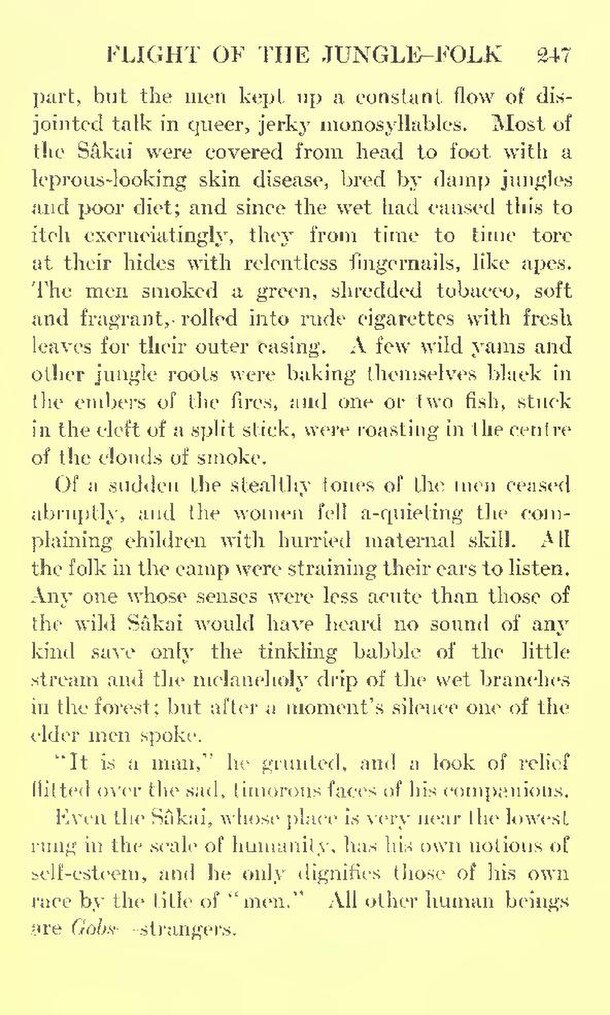part, but the men kept up a constant flow of dis- jointed talk in queer, jerky monosyllables. Most of the Sakai were covered from head to foot with a leprous-looking skin disease, bred by damp jungles and poor diet; and since the wet had caused this to itch excruciatingly, they from time to time tore at their hides with relentless fingernails, like apes. The men smoked a green, shredded tobacco, soft and fragrant, rolled into rude cigarettes with fresh leaves for their outer casing. A few wild yams and other jungle roots were baking themselves black in the embers of the fires, and one or two fish, stuck in the cleft of a split stick, were roasting in the centre of the conds of smoke.
Of a sudden the stealthy tones of the men ceased abruptly, and the women fell a-quieting the com- plaining children with hurried maternal skill. All the folk in the camp were straining their ears to listen. Any one whose senses were less acute than those of the wild Sakai would have heard no sound of any kind save only the tinkling babble of the little stream and the miclanelioly drip of the wet branches in the forest; but after a moment's silence one of the elder men spoke.
"It is a man," he grunted, and a look of relief fitted over the sad, timorons faces of his companions.
Even the Sakai, whose place is very near the lowest rung in the scale of humanity, has his own uotious of self-esteem, and he only dignifies those of his own race by the title of "men." All other human beings are Gobs strangers.
